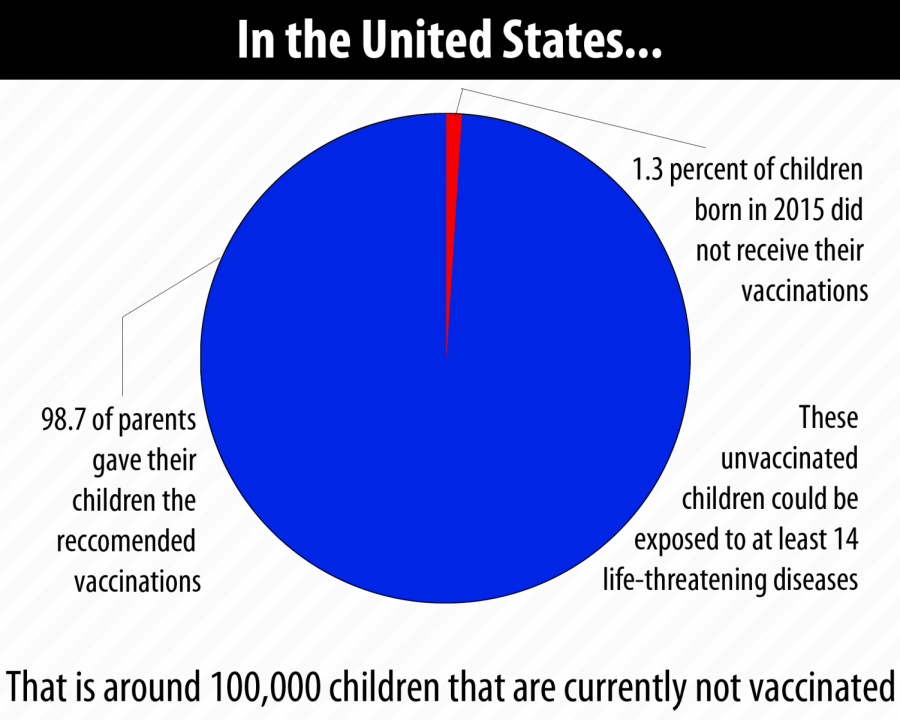Companies contest misinformation on vaccines
Chickenpox, Hepatitis A, Influenza, Measles, Mumps, Rubella, Polio, Tetanus, Whooping Cough, Rotavirus and Meningococcal. What do all of these diseases have in common? They’re all easily preventable by getting vaccines to combat these illnesses. For a while, a lot of these diseases were considered to be almost eradicated. However, with the recent surge of children not being vaccinated, these diseases are starting to become more prominent in today’s society.
There are a wide variety of reasons as to why parents choose not to vaccinate their children. The World Health Organization (WHO) cites some of these reasons as “the majority of the people who get the disease are vaccinated” to “vaccines may have harmful side-effects to those who get them.” The WHO goes on to debunk all of these claims and provide explanations as to why people should get vaccines in order to avoid contracting these diseases.
One of the most major claims that scare away parents from vaccinating their children is often a claim that vaccines can lead to autism. Specifically, the Measles, Mumps and Rubella (MMR) vaccine has been blamed for causing autism in children from the mercury present in it. However, the Annals of Internal Medicine published a study that showed that there were no increase in cases of autism in those who had gotten the vaccine with a high risk of developing the disorder.
Over 19 years ago, measles was announced to no longer be a major life-threatening virus in the United States. However, there have been larger outbreaks of measles cases than there have been in recent years. This is from parents not vaccinating their children, which is currently not required in 19 states. Between Jan. 1 and March 7, there have been 228 reported cases of measles in 12 different states across the United States.
In Oregon, a six-year-old child was diagnosed with Tetanus in 2017, which was the first case in the state in over 30 years. His treatment, which lasted two months, cost the family almost one million dollars in medical bills. Even after all of the treatment the doctors gave the child, along with repeated warnings, the family declined giving their child a second dose of the DTaP shot (the vaccine for tetanus) to prevent this disease in the future.
While some parents decline giving their children vaccines, some of these people who were not vaccinated as kids have decided to receive them on their own accord. One such case, Ethan Lindenberger, spoke before Congress about different social medias spreading false information about vaccines.
“For my mother, her love and affection and care as a parent was used to push an agenda to create a false distress. And these sources, which spread misinformation, should be the primary concern of the American people,” Lindenberger said.
Since then, different social media platforms have taken action to remove these types of pages from their sites. Facebook announced on March 7 that they would remove any groups or pages that spread misinformation about vaccines. YouTube also announced that the platform is demonetizing all channels that are spreading misinformation about vaccines. On March 12, Amazon announced they would remove all books that spread vaccination misinformation from its website and their book stores throughout the country.
The United States is not the only country where children being unvaccinated has become a problem. Most recently, Italy passed a law on March 12 that requires all children attending school to be vaccinated, or else they will not be able to attend. This follows the current policy in the United States, where children are not allowed to attend school unless vaccinated, with exemptions for religious, health or philosophical reasons. The WHO urges anyone who does not have vaccinations to receive them as soon as possible.



